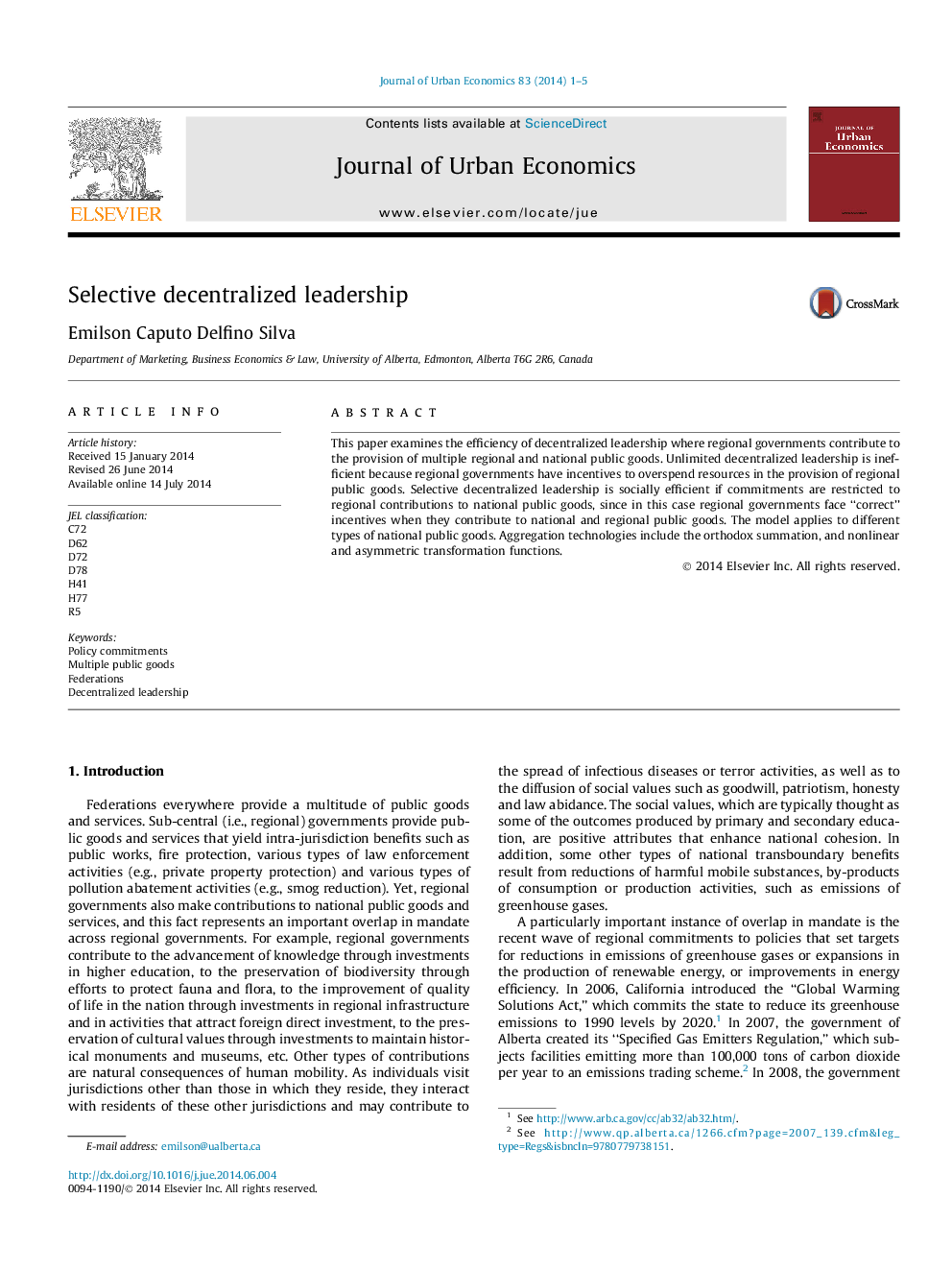| Article ID | Journal | Published Year | Pages | File Type |
|---|---|---|---|---|
| 970663 | Journal of Urban Economics | 2014 | 5 Pages |
This paper examines the efficiency of decentralized leadership where regional governments contribute to the provision of multiple regional and national public goods. Unlimited decentralized leadership is inefficient because regional governments have incentives to overspend resources in the provision of regional public goods. Selective decentralized leadership is socially efficient if commitments are restricted to regional contributions to national public goods, since in this case regional governments face “correct” incentives when they contribute to national and regional public goods. The model applies to different types of national public goods. Aggregation technologies include the orthodox summation, and nonlinear and asymmetric transformation functions.
